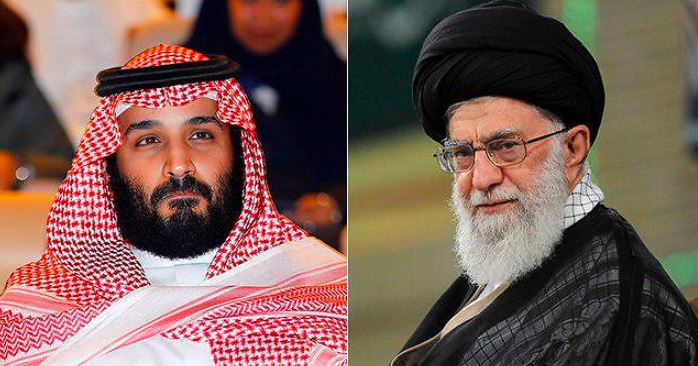Joe Biden just got outplayed in the Middle East. The US President was looking to befriend Iran and backstab longtime US ally, Saudi Arabia. But guess what, Tehran and Riyadh are close to striking a deal, which could kick the Biden administration out of the Middle East.
As such, Biden has only himself to blame for the big setback. He not only committed a strategic blunder by retaining CAATSA sanctions against Iran but exiting the Yemen war and gifting a winning position to the Shi’ite nation. So, Iran now finds itself with huge leverage over Saudi Arabia in the Yemen war, which it wants to use for routing oil supplies through Riyadh and bypassing American sanctions.
If Iran manages to route its oil supplies through Saudi Arabia and capitalise upon the strategic leverage in Yemen, US leadership would be effectively kicked out of the region. This might be temporarily good for Iran and Saudi Arabia and ensure peace in the region, but American leadership in the Middle East would quite literally stand uprooted. In the process, American sanctions which were actually blocking Iranian oil sales till now also become useless.
In fact, Middle East Eye (MEE) has published a report, according to which officials familiar with the ongoing Saudi-Iran talks in Baghdad have disclosed some crucial details. So, here is how things have panned out between the sides. Iran wants Saudi Arabia to sell its oil and circumvent US sanctions while cutting down on Houthi attacks against Saudi’s oil facilities.
The above proposal makes sense. Saudi Arabia and Iran share longstanding religious rivalry over the Sunni-Shia divide between Riyadh and Tehran. Till now, Saudi Arabia was happy to be a US ally. Former US President Donald Trump had gone as far as sanctioning the daylights out of Iran and helping Saudi Arabia fight the Yemen war against Iran-backed Houthi rebels.
However, with Biden in the Oval Office, Riyadh realised that the incumbent US President wants to revive the Iran nuclear deal at the expense of the Arab world. He also relegated Saudi Arabia into a disadvantaged position by withdrawing from the Yemen war.
Tehran, on the other hand, realised that it is being used as a pawn by the Biden administration as a part of its geopolitical manipulations in the Middle East. This is why Iran and Saudi Arabia started dialogue for the first time since 2016 at a neutral venue- Baghdad.
As per MEE, Iraqi sources present during a four-hour-long conservation between Saudis and Iranians last week said that Yemen remains the most discussed topic between the two sides. Saudis are seeking an end of hostilities by the Iran-backed Houthis on its oil and economic facilities.
On the other hand, Iran is pursuing what it desperately needs- some relief from American sanctions.
Notably, former US President Donald Trump had walked out of the Iran nuclear deal, or what is formally known as the Joint Comprehensive Plan of Action (JCPOA) in 2018. At the same time, Trump had imposed painful sanctions on Tehran, which have devastated Iran’s economy. Tehran kept negotiating with Biden for a full rollback of these sanctions as a precondition of reviving JCPOA, but the Biden administration cannot do that due to growing internal pressure.
Therefore, Iran is now ready to negotiate with Saudi Crown Prince Mohammed Bin Salman (MBS) as against US President Joe Biden. Tehran is pushing particularly hard for some relief in the oil sector, which is the driving force of the Iranian economy. Iran has lost many of its oil consumers, owing to the fear of American sanctions and now it wants Saudi to sell it in the international market.
One official was quoted by MEE as saying, “They (Iranians) offered to sell it (oil) to the Saudis at a price lower than international prices on the condition that the Saudis sell it on the world markets in their own way.”
For Saudi Arabia, it isn’t much of a problem to accept the Iranian oil anyway. Iran already relies on the UAE and Oman to sell its oil informally. And now, Tehran wants the third bypass against American sanctions in the form of Saudi Arabia.
Thus, the Iranian proposal is a win-win situation for Riyadh. One, Saudi Arabia can profiteer by functioning as a middleman in Iranian oil sales. And two, Riyadh can get some respite from the Iran-backed Houthis.
Iran and Saudi Arabia have clearly found mutual benefit in negotiating a truce. Iran is doing so for its oil sales, and Saudi Arabia is doing it for some relief in the Yemen war. However, the ultimate consequence is a sharp reduction in American leadership in the region.
